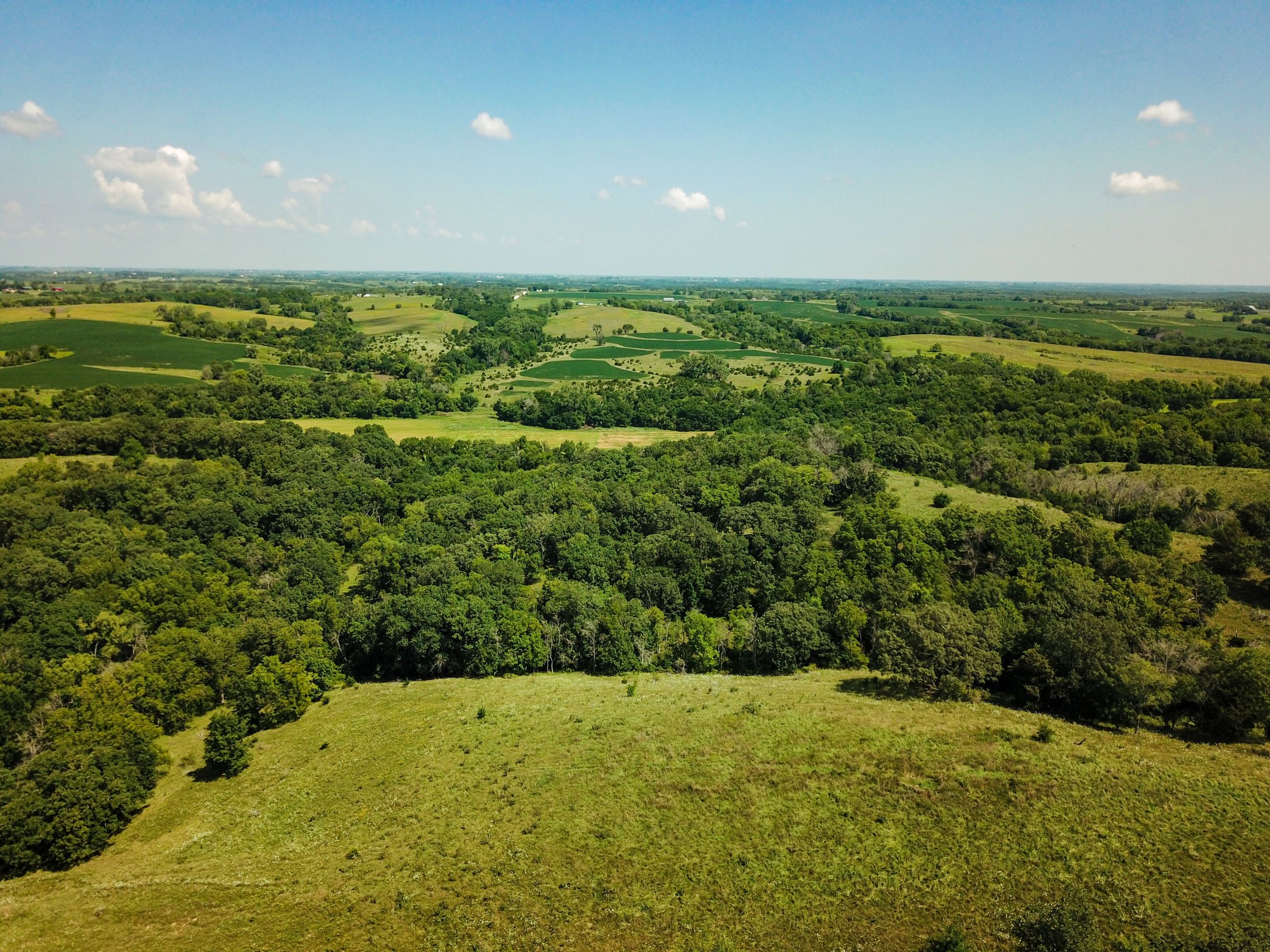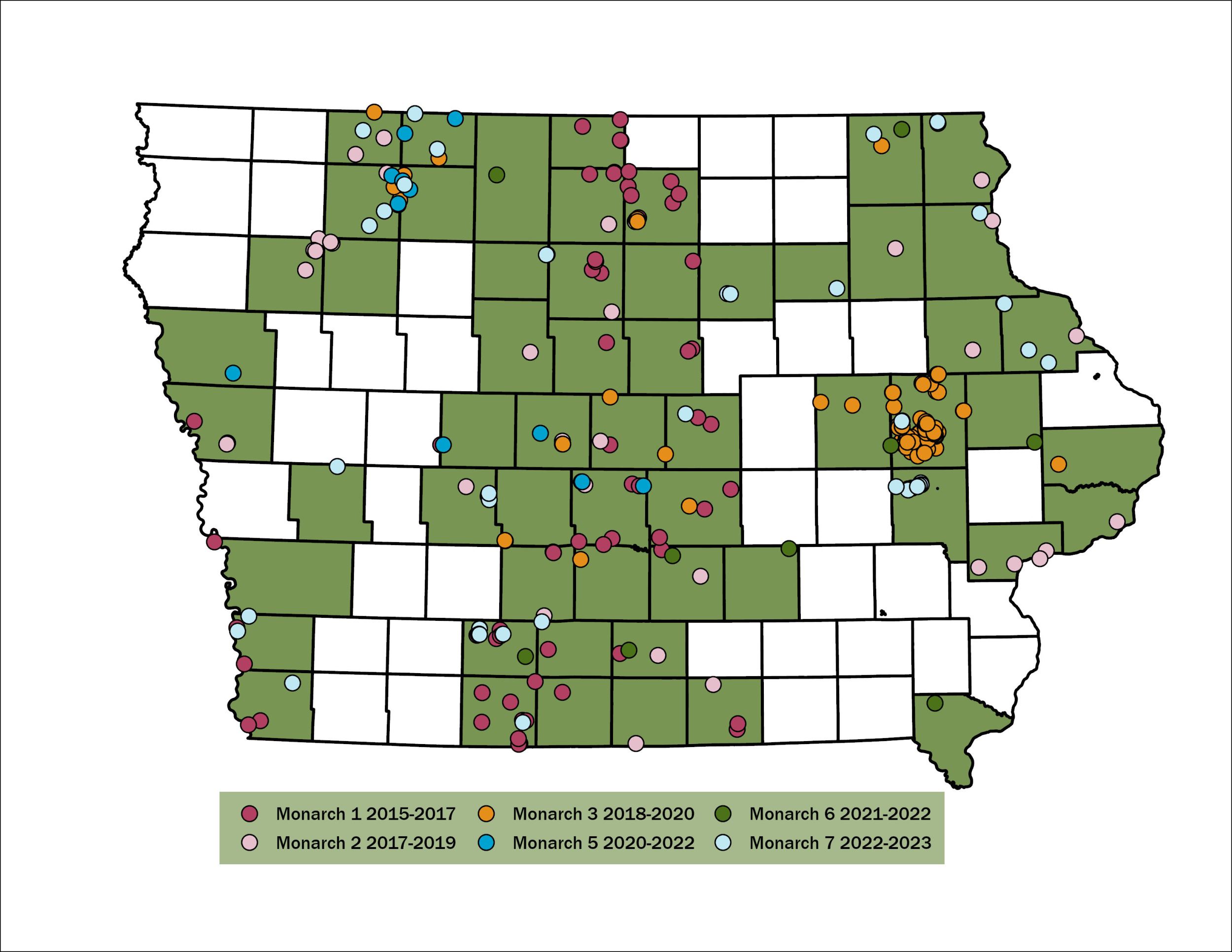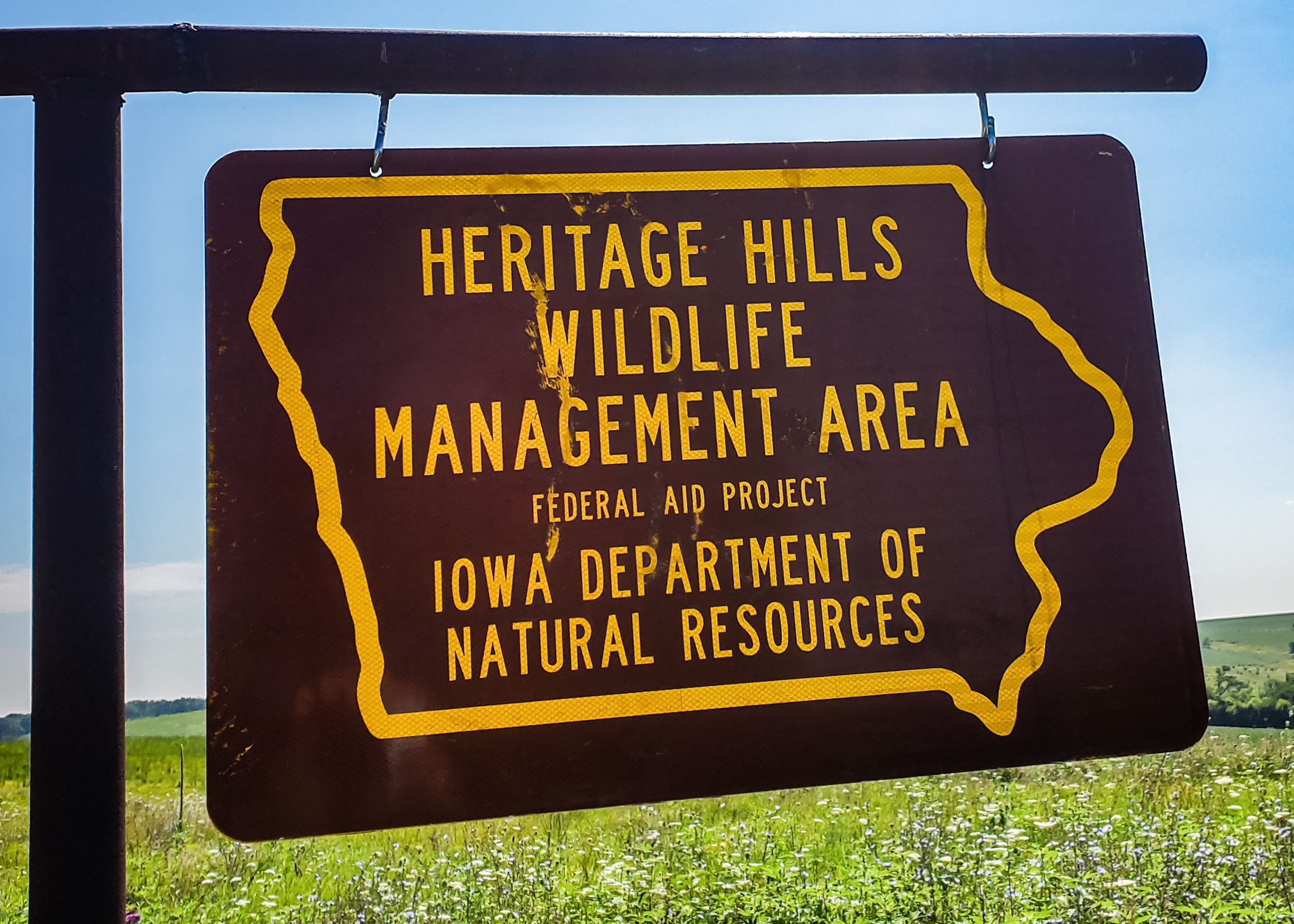Partnerships, Plantings & Pollinators
By Erica Place on June 1, 2022 in Blog
A years-long project in south-central Iowa culminates in more habitat and more wild spaces

The last piece of Heritage Hills Wildlife Management Area, a 1,021-acre property 45 minutes south of Des Moines, transferred to the Iowa Department of Natural Resources this May. Purchased by INHF in 2016, the property’s size, habitat and proximity to the metro made it an unusual and important protection opportunity. The expansive, roadless area provides crucial habitat for Iowa’s wildlife, including at least 18 bird and four mammal Species of Greatest Conservation Need. It is now open for the public’s enjoyment.
Creating a home for wildlife
Care has been taken to restore the woodland, savanna and remnant prairies. Seed mixes for prairie plantings could be thorough and diverse thanks to grant funding through the National Fish and Wildlife Foundation. “Restoration of the highly erodible hillsides began in 2018 with Iowa DNR restoring 100 acres to a diverse native prairie with an emphasis on native plant species that benefit monarch breeding and migration. Just this past spring, INHF coordinated the restoration of an additional 130 acres which will provide excellent habitat for wildlife, reduce runoff into Clanton Creek, and help to heal these soils long-term,” explained Ross Baxter, INHF Land Projects Director.

As a desiginated Wildlife Management Area, the property will remain free of trails and structures with an emphasis on providing a place for wildlife to rest, feed and raise young. But the property is clearly attracting the attention of more than just the wildlife. “This particular area has become very popular to the public with the variety of habitat types and recreational opportunities it provides,” remarks Heath Van Waus, Wildlife Biologist at the IDNR’s neighboring Rathbun Wildlife Unit. Whether you’re a hiker, hunter, photographer or forager, Heritage Hills offers something for everyone.
Meals for monarchs
The latest seeding at Heritage Hills is just one of the projects funded by this year’s “Monarch Grant” through the National Fish and Wildlife Foundation. To date, INHF has received six grants to support the expansion and diversification of native prairie on public land and wildlife areas, specifically to benefit pollinators like the eastern monarch.
- Eastern monarchs have declined by more than 80% over the last twenty years
- Monarchs have lost an estimated 165 million acres of breeding habitat in the United States to herbicide spraying and development in recent decades
- The University of Minnesota Monarch Lab estimates that it takes about one mature milkweed plant to feed one monarch caterpillar
- Iowa Monarch Conservation Consortium has outlined milkweed and habitat goals where all Iowans can participate to improve the future for monarchs. See more at monarch.ent.iastate.edu.

INHF and partners have been able to use a grant from the National Fish and Wildlife Foundation for restoration and enhanced management of Monarch habitat on public lands for the last seven years. Since 2015, the competitive grant has contributed $890,000 toward restoring more than 6,000 acres to native habitat and improving management of existing habitat on more than 24,000 acres at 336 sites through prescribed fire, brush removal and invasive species management.
Partnerships make it possible
Spanning six years from start to finish, Heritage Hills Wildlife Management Area is a good example that projects like this take time and a shared long-game vision among partners. This was a chance to showcase not only partnership in land protection, but also in land restoration.
 Recognizing the habitat and recreation implications of protecting this property, several local Pheasants Forever chapters provided significant support through banquet fundraisers. “Public access to recreational property continues to be a huge priority for our organization in Iowa,” said Eric Sytsma, Pheasants Forever Senior Regional Field Representative.
Recognizing the habitat and recreation implications of protecting this property, several local Pheasants Forever chapters provided significant support through banquet fundraisers. “Public access to recreational property continues to be a huge priority for our organization in Iowa,” said Eric Sytsma, Pheasants Forever Senior Regional Field Representative.
“Public support and partnerships for projects are the keys to success,” explained Bryan Hellyer, SE District Wildlife Supervisor with the Iowa DNR. “The Heritage Hills WMA would not have been possible without the partnership between Iowa landowners wanting to continue conserving their land and working with INHF and Iowa DNR in order to do so, for all Iowans to enjoy.”